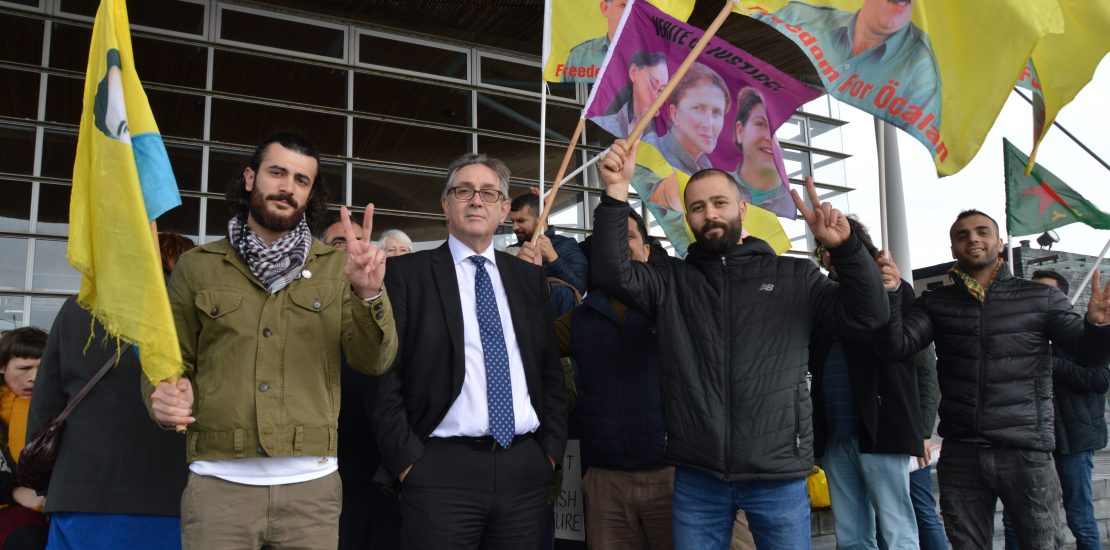- April 15, 2019
- Posted by: Mick Antoniw AM
- Category: Featured, Latest News

In March there was a debate on the plight of the Kurdish people at the Senedd. Here’s my contribution to the debate:
I am glad to be able to participate in this important motion, and, just as we have previously discussed issues relating to Spain and Catalonia, as I have previously raised issues relating to Ukraine, just as we discuss issues around genocide in the Balkans, so it is right that we speak up today on behalf of our Kurdish community and the current situation in Kurdistan, in Kurdish communities, and in the context of human and national rights. I first became engaged with Kurdish activists back in 1976, when I became aware of the history of the struggle of the Kurdish people to protect their cultural and linguistic rights and their rightful demands for nationhood. Their history is one of death and torture, of exploitation, broken promises and betrayal by the world’s powers—a trust that has been broken by the west time and time again as a consequence of geopolitical politics and vested interests, very similar to the geopolitics that I’ve spoken about in this Chamber affecting Ukraine to this day. So, it’s one that I feel a great personal affinity with.
As long ago as 1963, a Ukrainian dissident poet Vasyl Symonenko wrote a solidarity poem to highlight this common cause. It was titled ‘Kurdskomy Bratovi’, ‘to a Kurdish Brother’, and it was a poem that was rapidly banned by the then Soviet authorities. It read:
‘Вони прийшли не тільки за добром / Прийшли забрати ім’я твоє, мову.’
‘Жиріє з крові змучених народів / Наш ворог найлютіший—шовінізм.’
‘To steal your goods alone they did not come, / they came to take away your race and language.’
‘And on the blood of tortured nations thriving, / grows fat our worst of foeman—chauvinism.’
He acts with shame and with deceit, / his plan is to turn you all into a humble brood’.
Llywydd, this motion is not about the politics of Abdullah Öcalan or his political party. It is about the treatment of a political leader of many Kurds, arrested in February 1999, kept in solitary confinement, exposed—like many other Kurds—to trial recognised by the UN and human rights groups as unfair, and unsatisfactory treatment, as recognised by bodies such as Amnesty International, by the European Committee for the Prevention of Torture and Inhuman or Degrading Treatment or Punishment, and his treatment is symbolic of the treatment of the Kurdish people.
Llywydd, the plight of the is one we should be ashamed of, because over decades we have been—our Governments have been—complicit in turning a blind eye to the abuses of basic human and national rights, just as we have of the Palestinian people. It seems that we are forever to put our economic and vested interests ahead of the basic rights of the Kurdish people and the undemocratic and increasingly oppressive actions of the Turkish Government and also, indeed, the Syrian, Iraqi and Iranian Governments. It seems that yet again oil always speaks louder than human rights.
Since the coup in Turkey, 150,000 public officials have been dismissed, 64,000 jailed on so-called terrorism charges, and 150 journalists and nine parliamentarians imprisoned. Atrocities are being committed on a daily basis against the Kurdish people. If there is ever to be a just peace and resolution of the Kurdish question, then Turkey and other Governments must engage with the Kurdish people and their representatives. I, therefore, give my full support to this motion.
And, in respect of the Tory amendment, it is typical of the Tories that they choose to ignore human rights issues and become apologists for Turkish atrocities. I condemn all terrorism and human rights abuses and I note that this amendment—. This amendment is exactly the same tactic the Tories used to support apartheid South Africa—the same Tories who labelled Nelson Mandela a terrorist, who wore—[Interruption.]—the same Tories who wore ‘hang Mandela’ T-shirts, only to fawn over Nelson Mandela decades later, despite doing nothing to secure his release, and it is so disappointing that they repeat their historic mistakes and failings.

